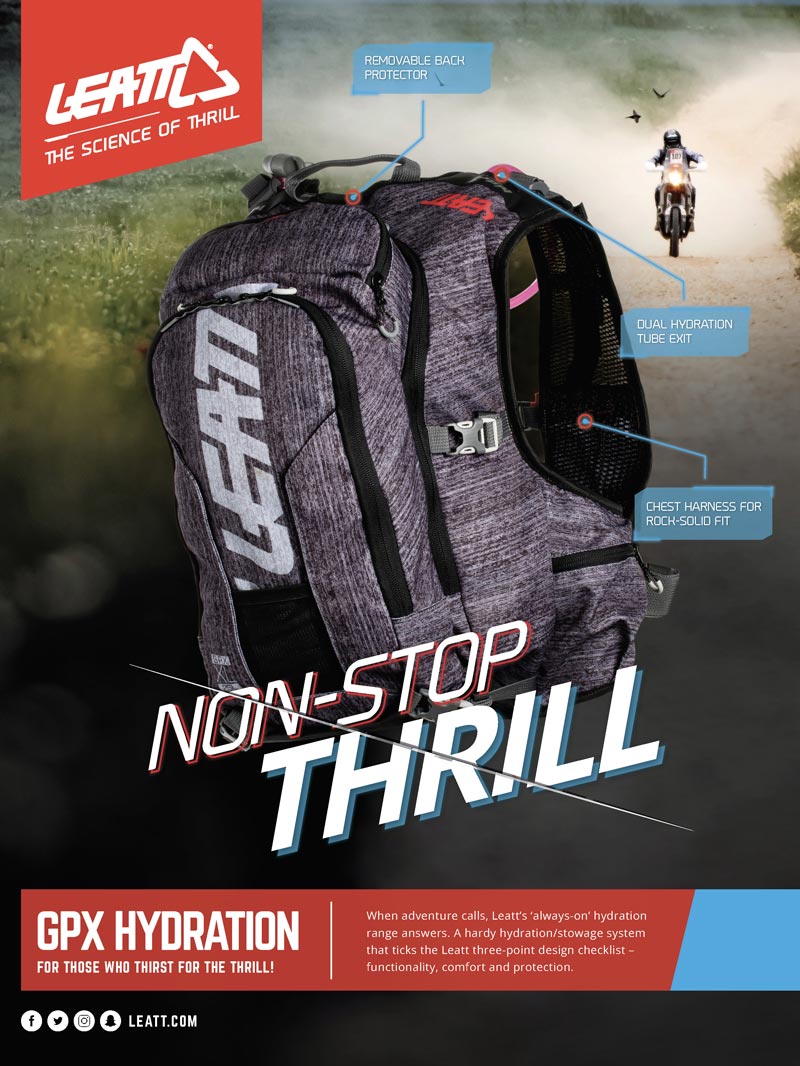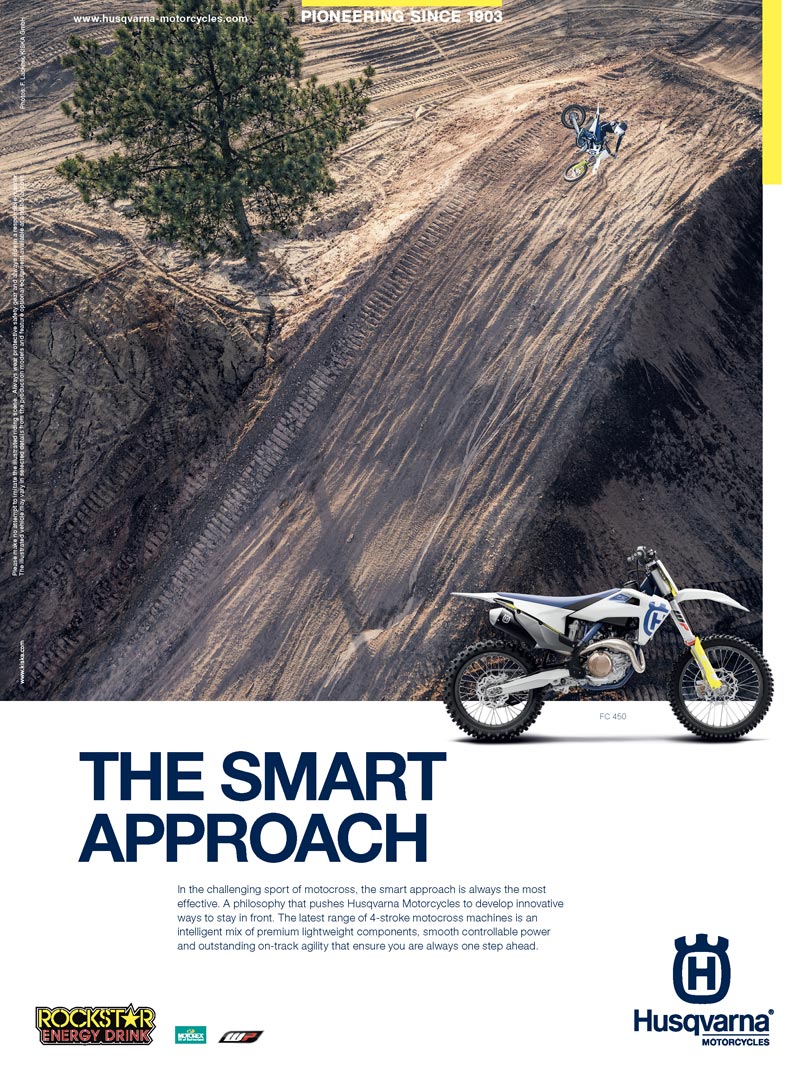


PHOTOS: JOE BONNELLO

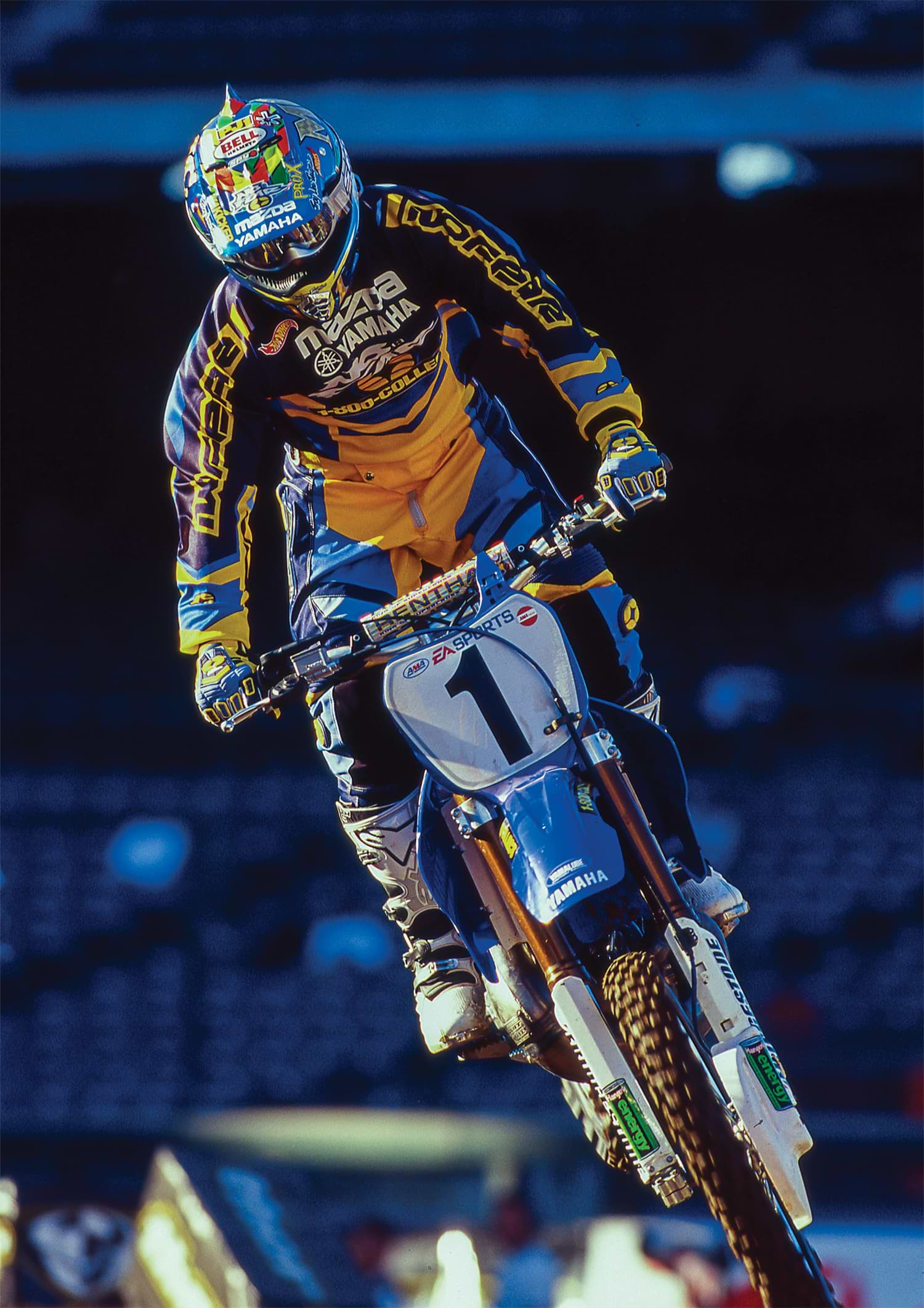
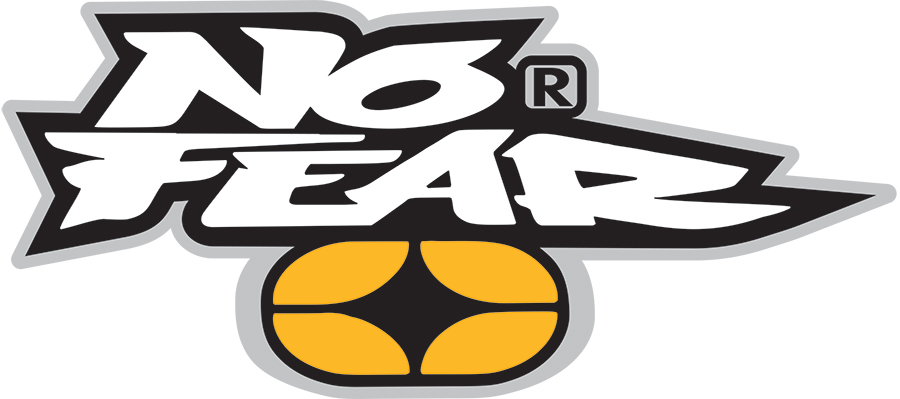

Jeff Surwall (co-owner and agent): I always kind of played around with riding gear and thought it could be better. With Jeremy [McGrath] and Travis [Pastrana] and a bunch of the guys I [represented], they would wear No Fear clothing 23 and a half hours of the day, then race on TV wearing Fox or whatever. No Fear didn’t have any control or any exposure.
Mark Simo: His thinking was right in line with my thinking: coming up with higher price point, higher-quality products that were more designed to support the brand. So I said, “Jeff, if you want to take that, let’s go ahead.”
Surwall: We were so involved in the sport, but were just a sideline to it. I knew what the guys were making, salary-wise, and I knew that Jeremy’s deal was coming up, Travis’s deal was coming. I wanted to do this but the brothers said, “It’s too expensive. We don’t really want to do it.”
Jeremy McGrath (co-owner and athlete): I’m on top of the world with Fox. I’m winning races. I had just transitioned onto Yamahas in ’98. Then Jeff came to me with the gear idea and I said, “Of course!” My Fox contract said that if I changed my schedule, my deal had to be renegotiated, and I had switched to supercross-only. Looking back, obviously I made some mistakes because I got in a lawsuit with Fox over bonus structure and stuff like that, but we got all that straightened out and No Fear MX was good.
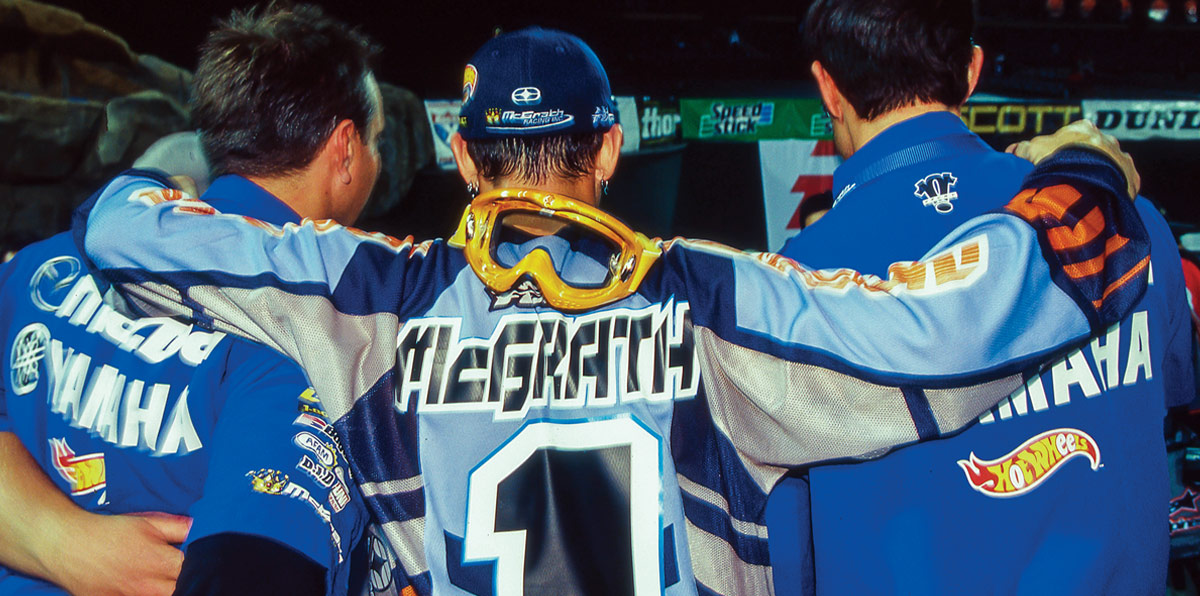
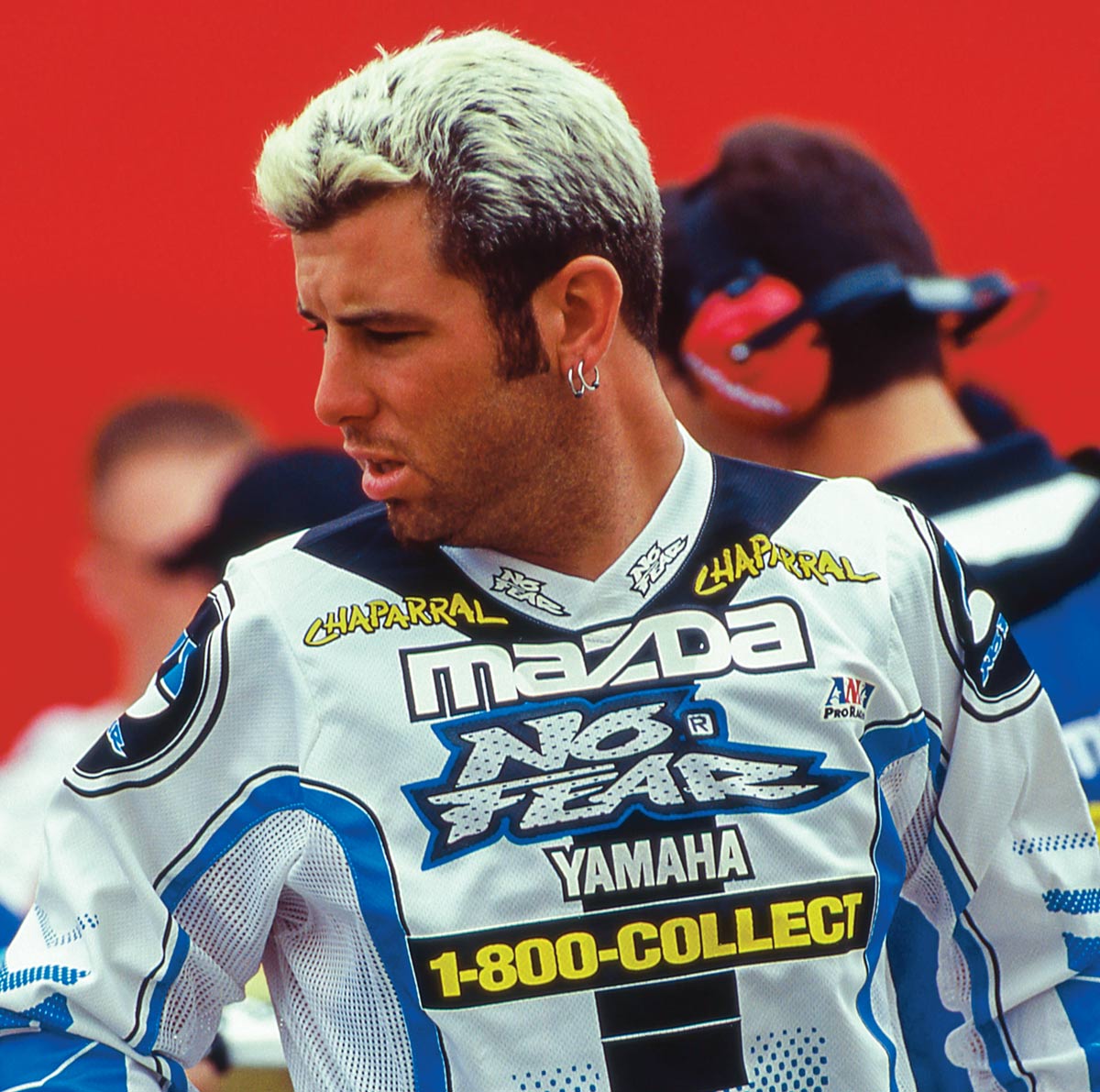
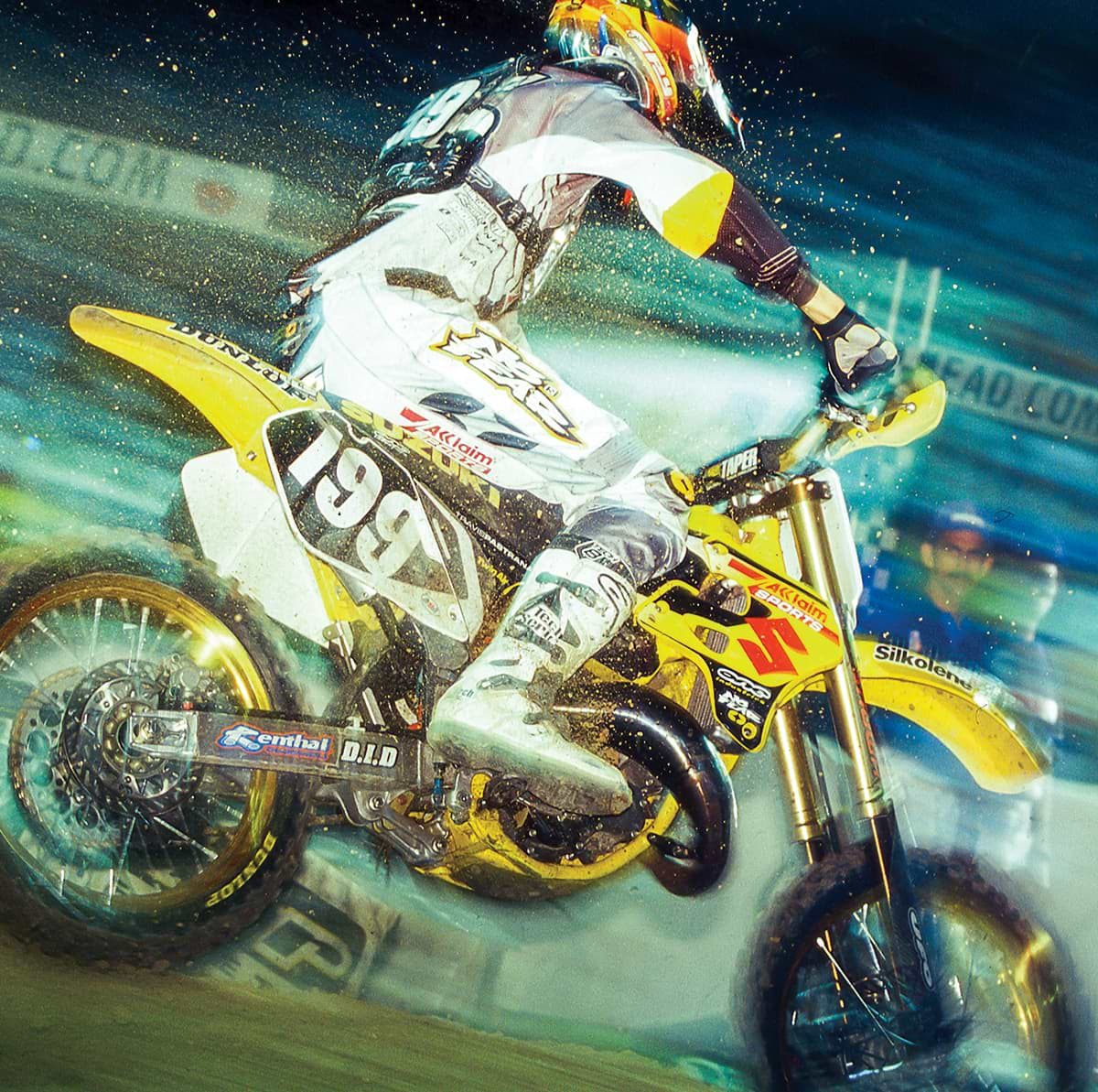
- Right out of the gate, No Fear MX had a bevy of talent on their roster, led by multi-time AMA Supercross Champion and co-owner Jeremy McGrath, as well as Team Honda’s Kevin Windham (14), Kawasaki’s veteran superstar John Dowd (16), multi-time FIM Motocross World Champion Sebastien Tortelli (bottom left), and action-sports icon Travis Pastrana (199), who was pilfered away from Fox Racing right when he turned pro.
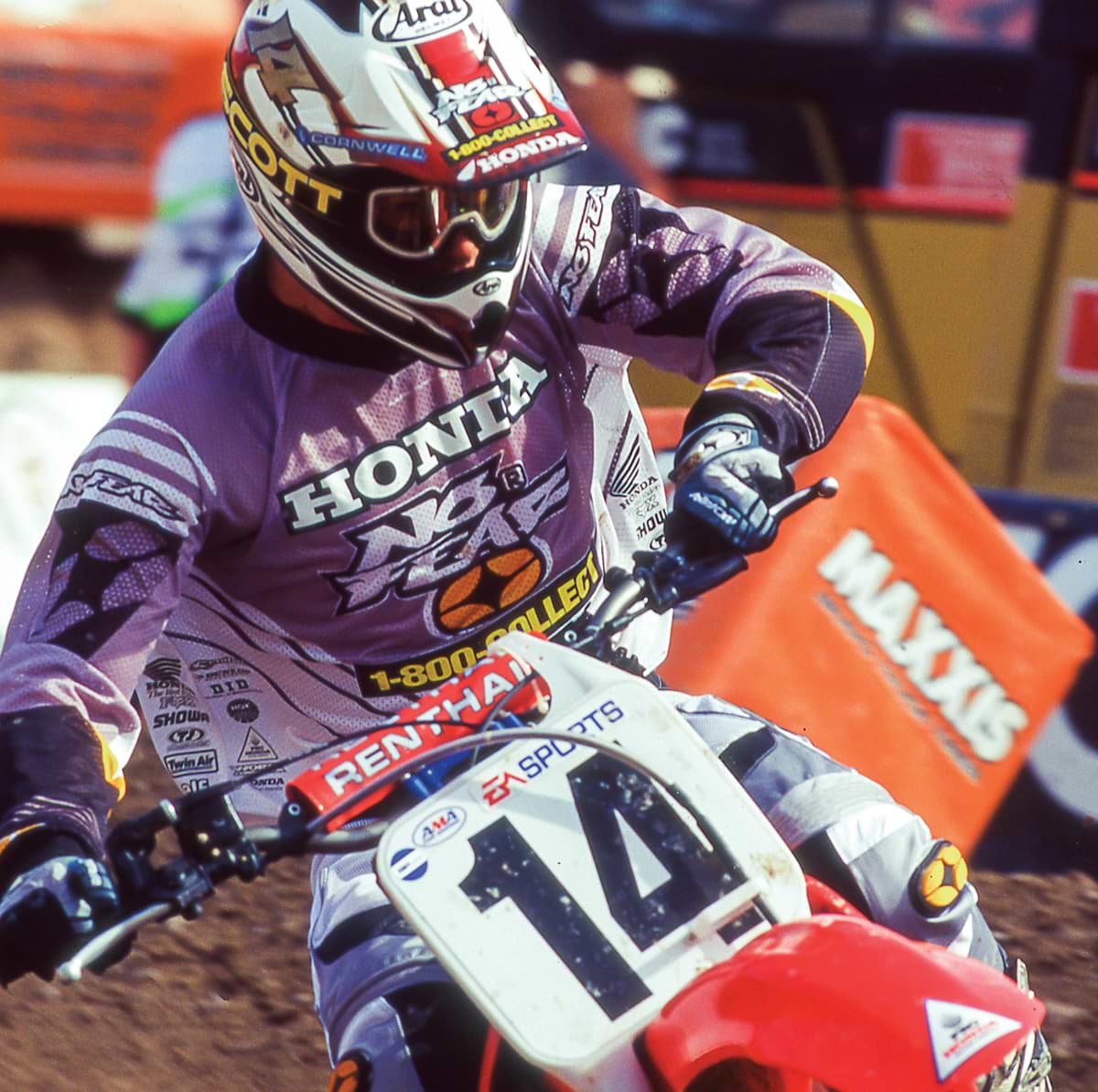
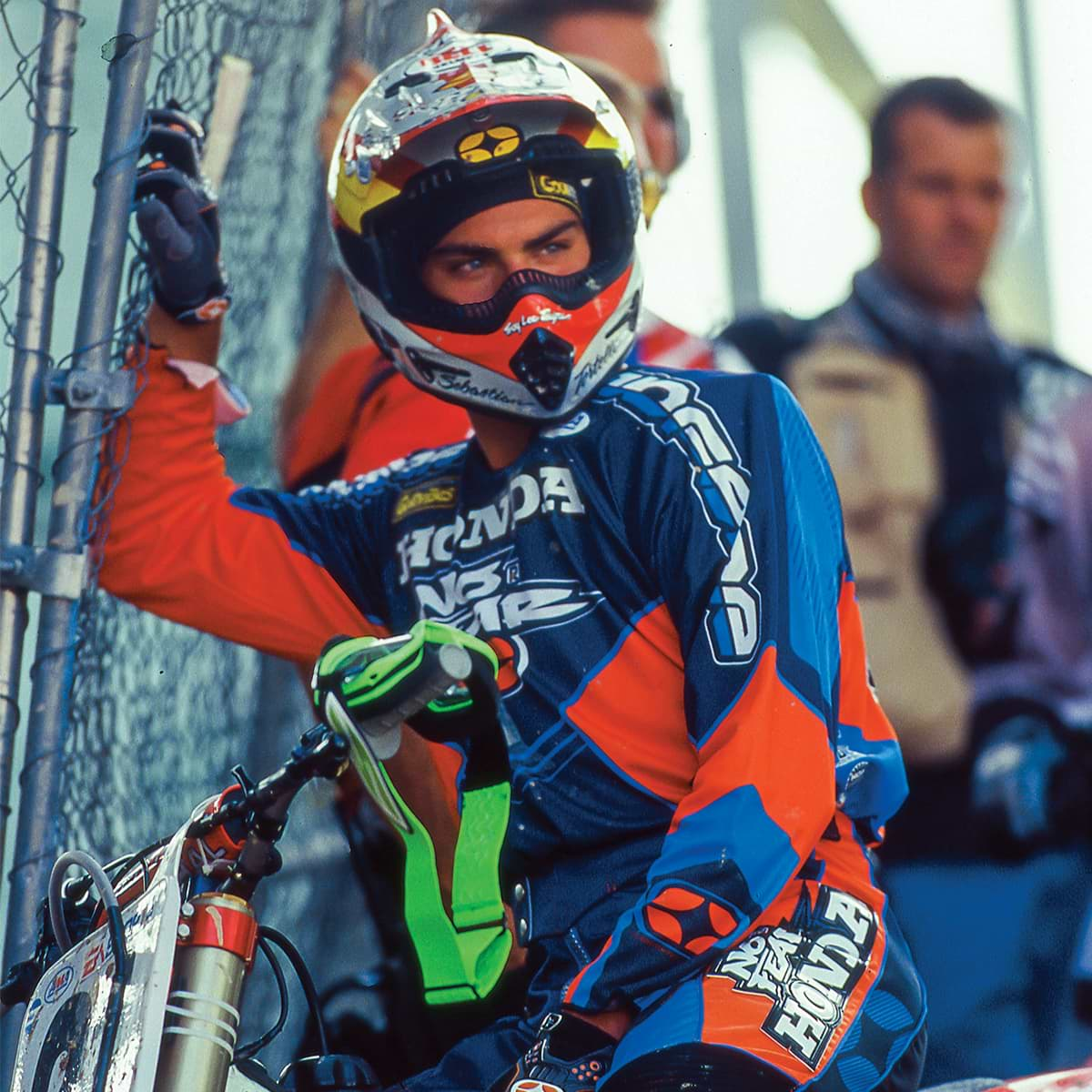
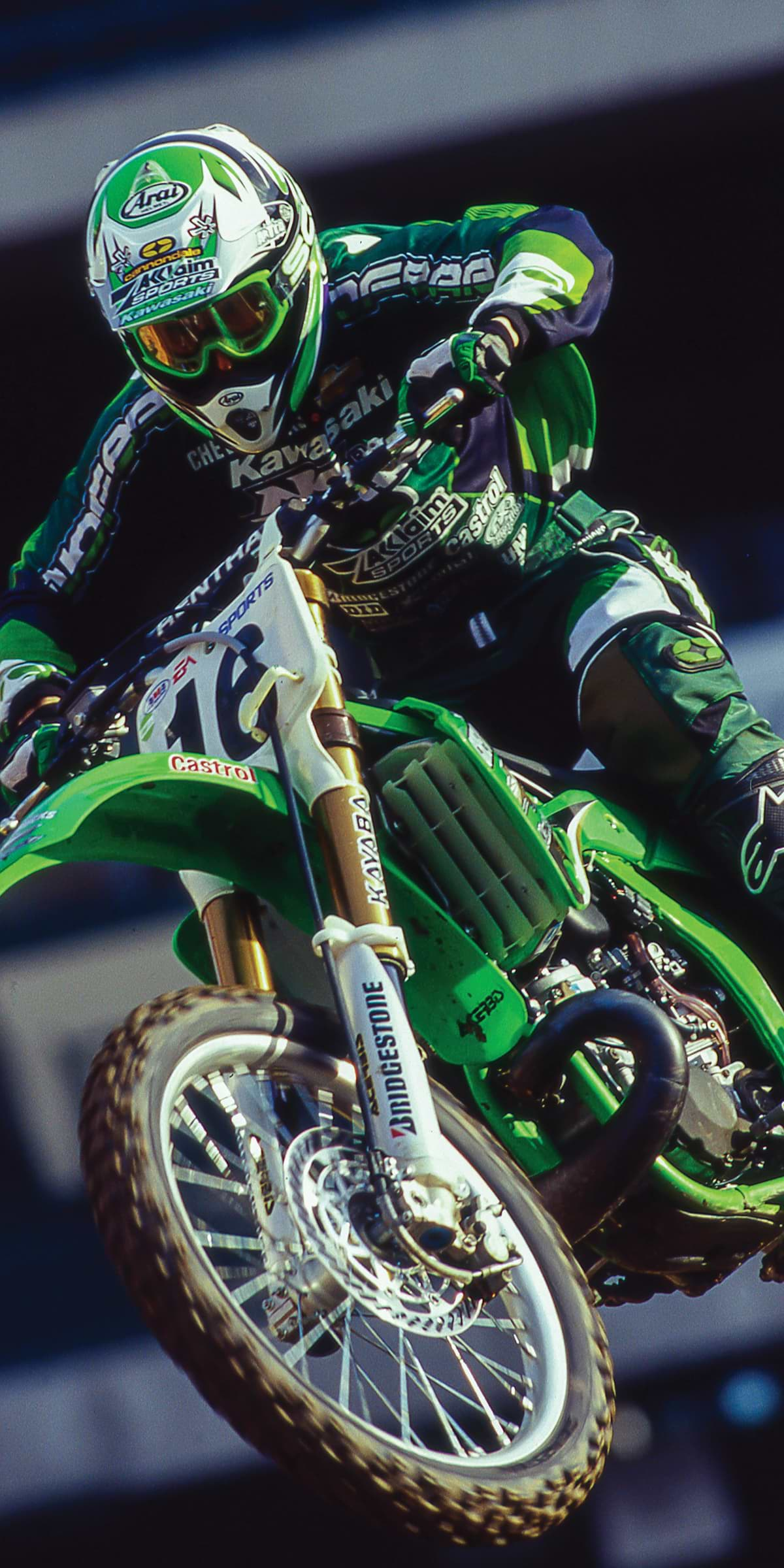
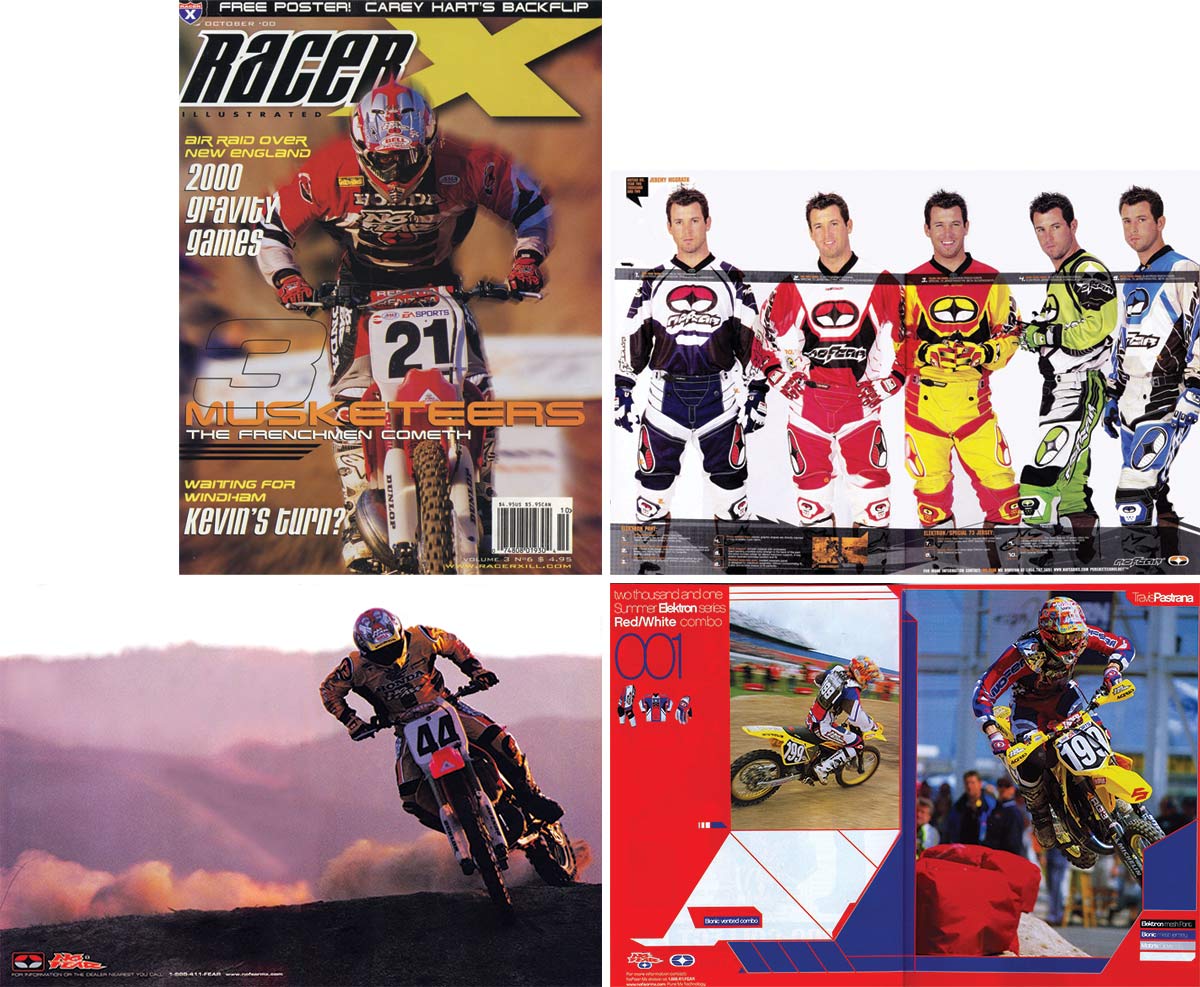

McGrath: Jeff and me were 50/50 partners. He thought that we would be able to use No Fear’s dealer network. However, No Fear MX was totally separate from the T-shirt side of it. He put money in and I put money in, too, probably to the tune of about $800,000. But I was also taking a salary from the company as an athlete. So I was an investor, business owner, and also an athlete.
Surwall: I was helping Travis do some stuff, but I wasn’t doing his Fox deal after I was making gear—it was him and his dad. I knew he was hurt, but I said, “I don’t care, you’re Travis. You’ll tape yourself together if you have to—I know how you are!” They appreciated that, because we didn’t know when he’d race again, but I thought he was worth it no matter what.
Pastrana: I had a really good relationship with Fox. They really built me from the ground up. But when I was hurt, not only did McGrath reach out, but so did Jeff. He said, “You’re going to be the highest-paid 125 guy. We believe in you.” I had already won X Games, and then I won Loretta Lynn’s. Honda and Fox came in with huge money. Fox were like, “What kind of car do you want?” I had just turned 16 and I said, “I love Corvettes.” They’re like, “That’s the signing bonus.” The number was triple what No Fear had offered. Pete Fox was really excited and said, “What do you think?” My dad goes, “Well, one, my son is not worth half that much, and two, you didn’t believe in him when he was hurt, and I believe life is about people that believe in you when you’re down.” Pete got up and walked out. My mom and I were sitting there like, “What the f–k?”

Skip Norfolk (MX brand manager): We started pushing the envelope with the cut-and-sew that No Fear was doing. I was able to tap into those resources and start making sublimation jerseys—before anybody really knew what sublimation was. We really tried to change some things from a construction standpoint, a materials standpoint, and then the design side of things was just light years ahead of everybody else.
Surwall: The gear came out in September, and in four months we did $4 million in gear. When I sold it, we were about just over $20 million in sales. I was amazed it took off like it did. We did a helmet priced at $160. I couldn’t make it fast enough! One year we sold 53,000 helmets. I couldn’t get the boats across the ocean fast enough! The gear and the bright colors and doing neon stuff for Travis or camo for Kevin, blues for McGrath. I think riders appreciated having something different and something special. . . . I don’t think anybody was expecting the gear to be as much of a success or become the driving force behind the No Fear brand. There were some gray areas in the agreement, which made it a little more difficult. The brand was going in some directions that we didn’t want the gear to be, like in mall stores. And when they’d have a No Fear store, they wanted the gear, but they didn’t want to sell gear in store locations, they wanted it in [motorcycle] dealerships only. It’s hard to be a gear brand and a clothing brand and not be on exactly the same path.
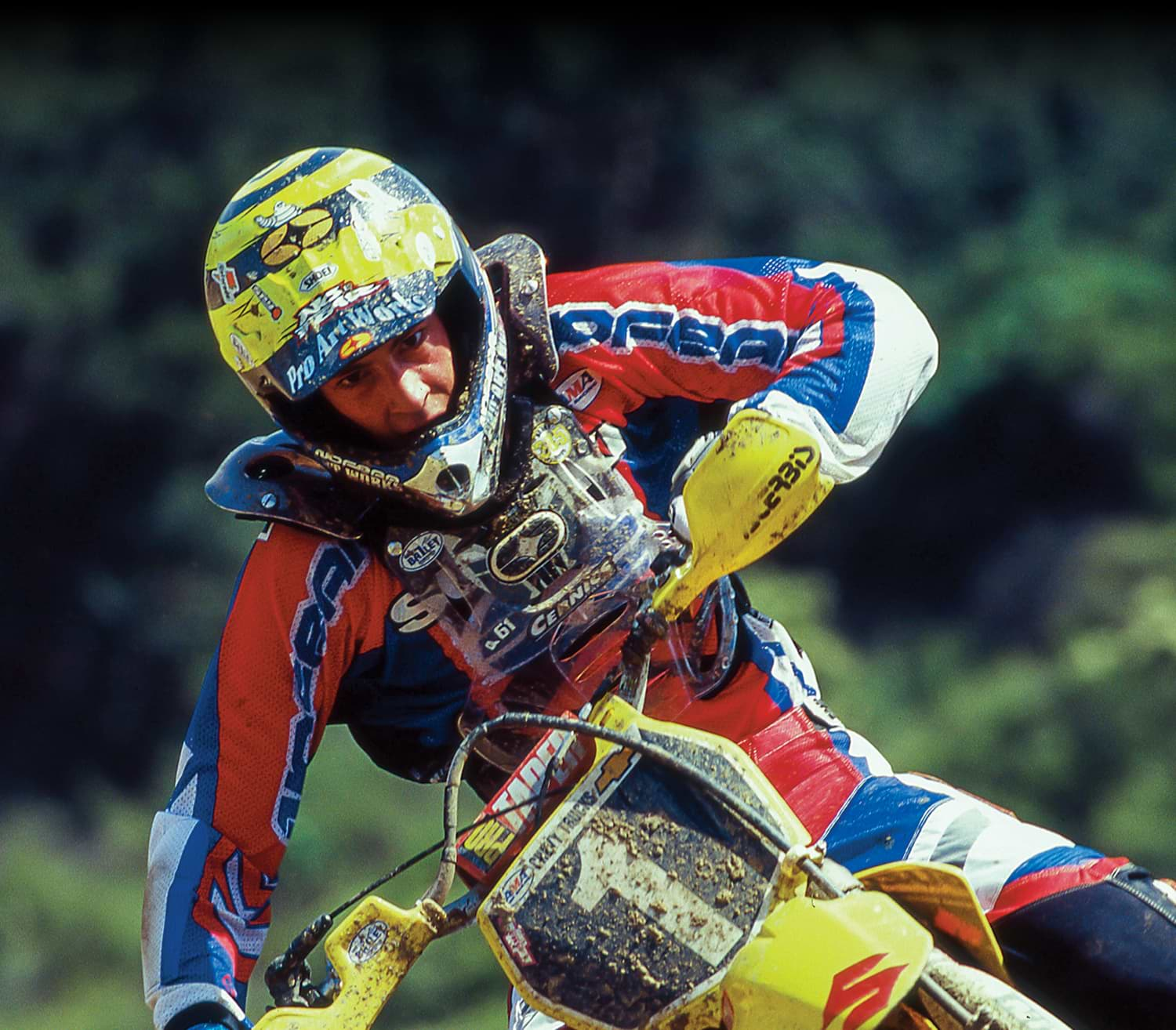

Surwall: It was difficult for a while there. Jeremy had some opportunities with a guy from Pennsylvania [the late Chris Carnicella] who promised him the world with this company called AST. They wanted to put No Fear jerseys in Walmart with “McGrath” on them. But I wasn’t allowed to put the jerseys into that channel of distribution, nor did [the Simo brothers] want to put it in Walmart either. So we said, “You can use the outline and all the other parts of the design, but you can’t have a name on it.” AST told him he can’t do it unless he has the name on it. Then he started getting frustrated because I couldn’t do it, even if I wanted to.
McGrath: When the split actually came, Jeff didn’t think it was fair. I was like, “Okay, well then you buy me out.” So then we had to go get a business appraisal. Jeff and I had to negotiate and figure out what he was going to pay me. At the end of the day, for me and No Fear, I did a lot of growing up with those guys; I was sort of raised around No Fear. Today, Jeff and I have put all that stuff behind us. I love that guy.
Surwall: It was difficult for a while there. Jeremy had some opportunities with a guy from Pennsylvania [the late Chris Carnicella] who promised him the world with this company called AST. They wanted to put No Fear jerseys in Walmart with “McGrath” on them. But I wasn’t allowed to put the jerseys into that channel of distribution, nor did [the Simo brothers] want to put it in Walmart either. So we said, “You can use the outline and all the other parts of the design, but you can’t have a name on it.” AST told him he can’t do it unless he has the name on it. Then he started getting frustrated because I couldn’t do it, even if I wanted to.
McGrath: When the split actually came, Jeff didn’t think it was fair. I was like, “Okay, well then you buy me out.” So then we had to go get a business appraisal. Jeff and I had to negotiate and figure out what he was going to pay me. At the end of the day, for me and No Fear, I did a lot of growing up with those guys; I was sort of raised around No Fear. Today, Jeff and I have put all that stuff behind us. I love that guy.
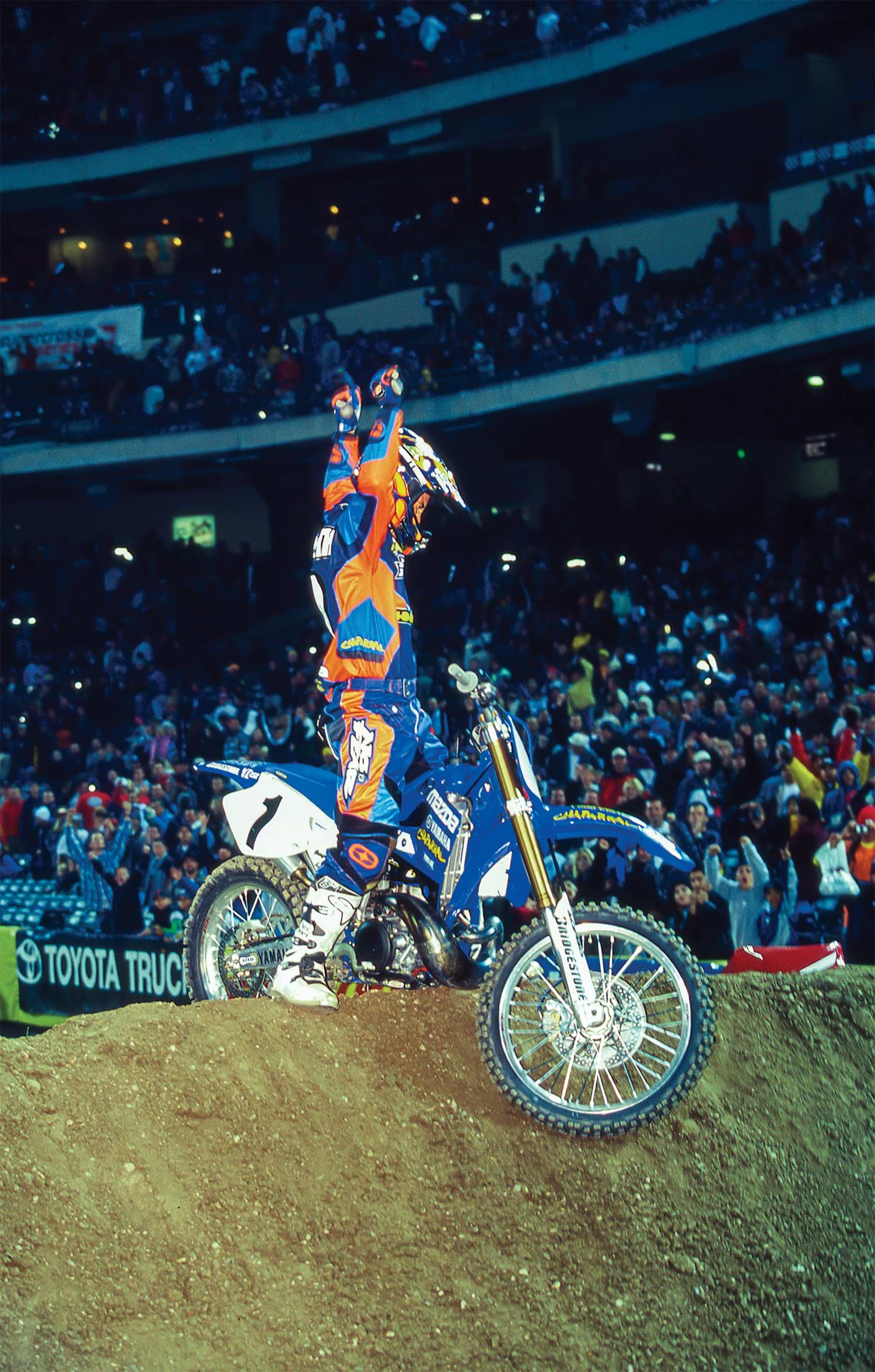
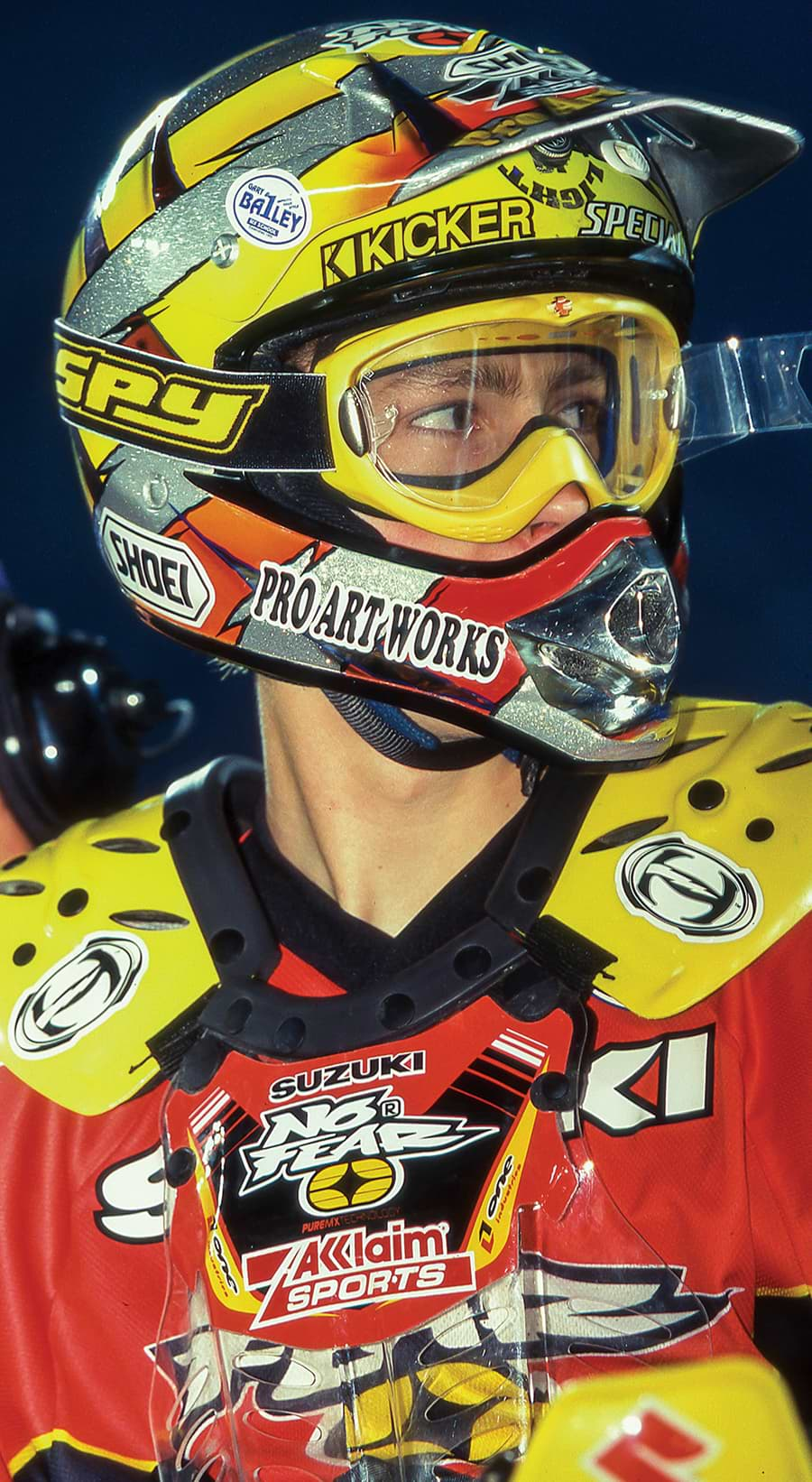
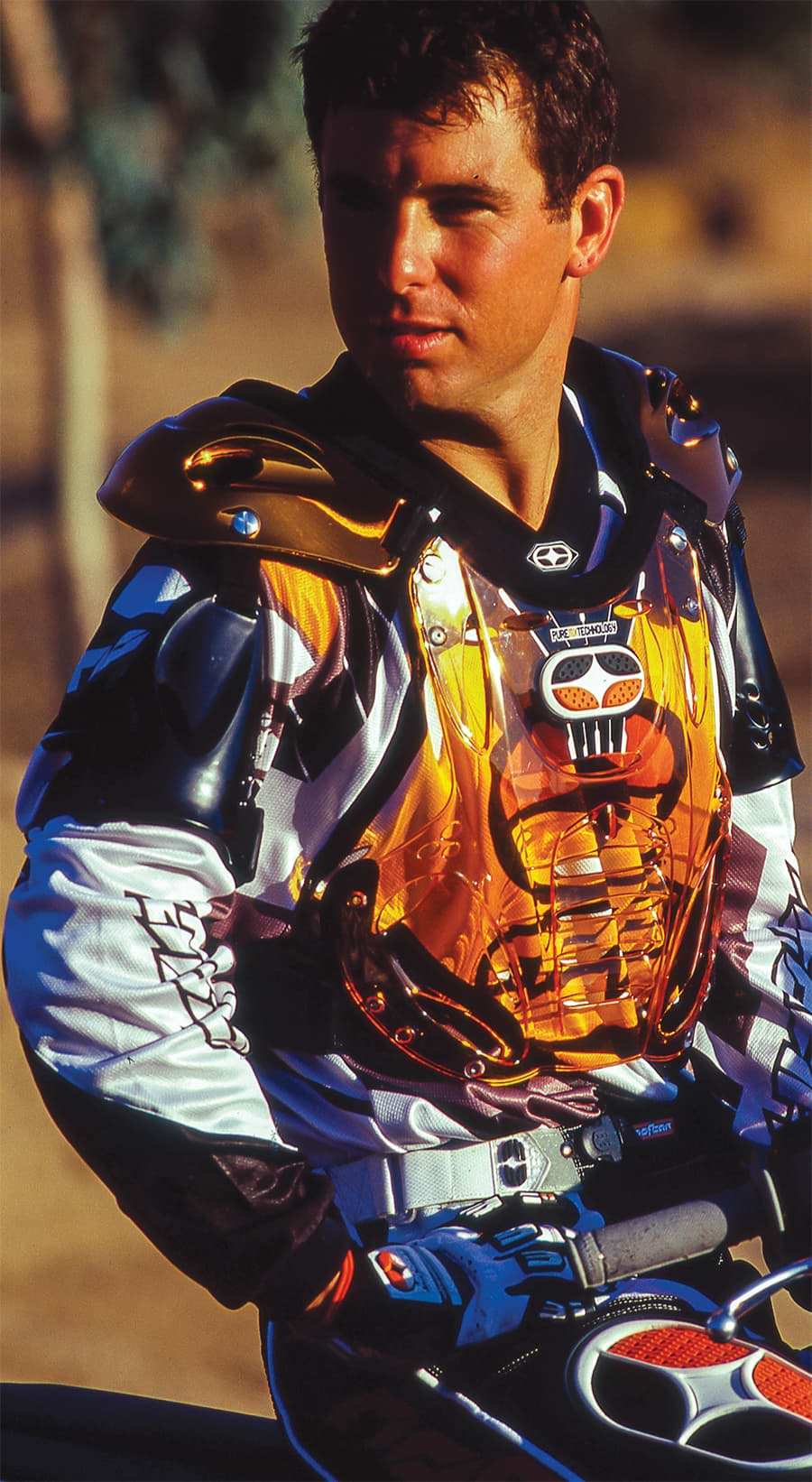

Pastrana: My dad had a falling-out with Jeff, which was odd because he really was on his side. He liked people that go by their word. Then something happened, I’m not really sure. I pretty much just raced at that point and didn’t know all the details. It just didn’t feel like home.
Mark Simo: What a lot of people don’t hear . . . I funded most of [No Fear MX]. No one wants to tell that part of the story. I had a tremendous amount of money coming in. I had done a license deal with Pepsi. So we were putting up a lot of the money for [Surwall’s] employees. We certainly paid all the overhead, because it was done in our facility. I wasn’t even charging royalty because he was my best friend. But at some point I think it got where he wanted to go off on his own.
Surwall: I had started thinking on changing the name. Even back in 2000, when I trademarked Alias, which later became a gear brand, I thought of changing it to that. We were very proud of all of our products. No Fear’s quality was struggling, in my opinion, or the designs were, but anything they did or I did was tied together. As they opened stores and cash flow got tighter and tighter for them, their problems became my problems, just because of guilt by association or whatever. Mark was very into car racing and NASCAR. I didn’t think it did much for the brand at all. I thought motocross was the base of the brand and the importance of it; they thought they were going to grow it in NASCAR. It came time to either change the name or they’ve got to buy the name for the trademark back. Mark decided he wanted to buy it, so we made a deal to have them buy the motocross gear from me.
McGrath: Looking back, I would have made a few changes and I think we’d be all bazillionaires by now. But hindsight is 20/20.
Mark Simo: That’s what business teaches you as well, whether you’re a professional athlete or a businessman. If you get on a motorcycle, you will crash. You will make mistakes. With business, you’re going to find the day you wish you’d have done everything better. So hindsight is a wonderful thing, but it’s just that. 
Interested in reading more about how No Fear came and went? Read the entire story at racerxonline.com/nofear.


